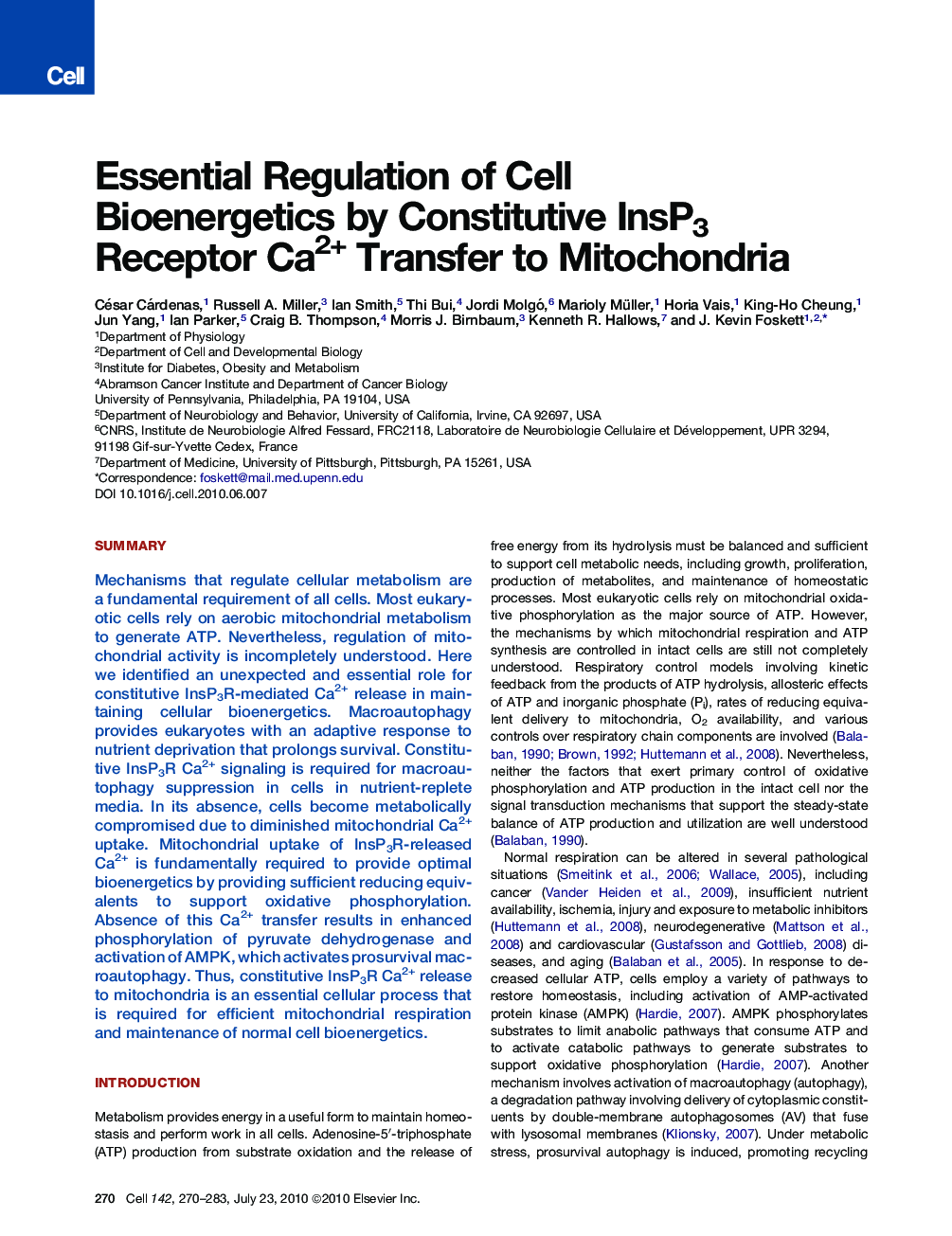| Article ID | Journal | Published Year | Pages | File Type |
|---|---|---|---|---|
| 2036259 | Cell | 2010 | 14 Pages |
SummaryMechanisms that regulate cellular metabolism are a fundamental requirement of all cells. Most eukaryotic cells rely on aerobic mitochondrial metabolism to generate ATP. Nevertheless, regulation of mitochondrial activity is incompletely understood. Here we identified an unexpected and essential role for constitutive InsP3R-mediated Ca2+ release in maintaining cellular bioenergetics. Macroautophagy provides eukaryotes with an adaptive response to nutrient deprivation that prolongs survival. Constitutive InsP3R Ca2+ signaling is required for macroautophagy suppression in cells in nutrient-replete media. In its absence, cells become metabolically compromised due to diminished mitochondrial Ca2+ uptake. Mitochondrial uptake of InsP3R-released Ca2+ is fundamentally required to provide optimal bioenergetics by providing sufficient reducing equivalents to support oxidative phosphorylation. Absence of this Ca2+ transfer results in enhanced phosphorylation of pyruvate dehydrogenase and activation of AMPK, which activates prosurvival macroautophagy. Thus, constitutive InsP3R Ca2+ release to mitochondria is an essential cellular process that is required for efficient mitochondrial respiration and maintenance of normal cell bioenergetics.
Graphical AbstractFigure optionsDownload full-size imageDownload high-quality image (173 K)Download as PowerPoint slideHighlights▸ Constitutive InsP3R Ca2+ release suppresses autophagy in nutrient-rich conditions ▸ Absence of constitutive InsP3R Ca2+ release reduces cell ATP and activates AMP kinase ▸ Mitochondrial uptake of released Ca2+ is required for sufficient ATP production ▸ Constitutive ER-to-mitochondria Ca2+ transfer is essential for normal bioenergetics
